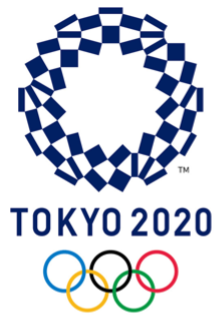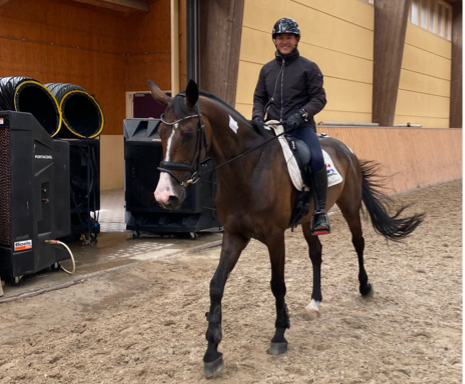Effect of a 14-Day Period of Heat Acclimation on Horses Using Heated Indoor Arenas in Preparation for Tokyo Olympic Games
Carolien Munsters, Esther Siegers & Marianne Sloet van Oldruitenborgh-Oosterbaan (2024). Animals, 14(4), 546. https://doi.org/10.3390/ani14040546
Background

Exercising in hot and humid conditions reduces the exercise capacity of horses and increases the risk of heat-related illnesses. The Tokyo Olympic Games in 2021 were expected to be held in the hottest conditions compared to previous Olympic games. Under these conditions, human and equine athletes face challenging situations that may impede their performance and health. Heat acclimation (in a climate chamber) or acclimatisation (in a natural environment) induce physiological adaptations that mitigate thermal strain through improved thermoregulatory capabilities. While relocating horses for training involves significant logistics and costs, exercising in a heated treadmill room might interfere with the normal training regime, prompting the need for more practical methods. Therefore, the aim of this study was to investigate the effects of a 14-day period of heat acclimation by training in a heated indoor arena.
Methodology
Four warmblood horses selected for the Tokyo Olympic Games underwent a 14-day heat acclimation period 3 weeks before the competition date. The horses were trained for 60 minutes per day following their usual training routines in an indoor arena that was maintained at a temperature of 32 ± 1 °C and a humidity of 50–60% during training times to simulate the hot, humid conditions of the Tokyo 2021 Olympic Games. A discipline specific exercise test was performed on the first and last day of the acclimation period. Various physiological responses, such as heart rate (HR), plasma lactate concentrations (LA), body temperature, and sweat loss, were measured both before and after exercise sessions to assess how well the horses adapted to the heat.

Results
The study found that a 14-day heat acclimation period, with 60 minutes of daily training in heated indoor arenas (32°C, 50-60% humidity), significantly reduces thermal strain in horses. After the acclimation period, the horses showed decreased heart rate, rectal temperature, and LA concentration, an increase in the time taken to reach the peak rectal temperature, and an increase in heat storage. Individual responses varied, highlighting the importance of monitoring how individual horses respond to thermally challenging situations closely.
An acclimation period of 14 days for 60 min a day in a heated indoor arena can be used during preparation for a high-level competition to significantly reduce thermal strain.
Recente berichten
- Blankets for Horses: When Are They Really Necessary? 14 November 2024
- A prospective cohort study on the acute:chronic workload ratio in relation to injuries in high level eventing horses: A comprehensive 3-year study 30 October 2024
- Effect of a 14-Day Period of Heat Acclimation on Horses Using Heated Indoor Arenas in Preparation for Tokyo Olympic Games 28 October 2024
- How Do Horses Regulate Their Body Temperature? 8 October 2024
- Leg Protection and Heat: What Every Rider Should Know 8 October 2024
